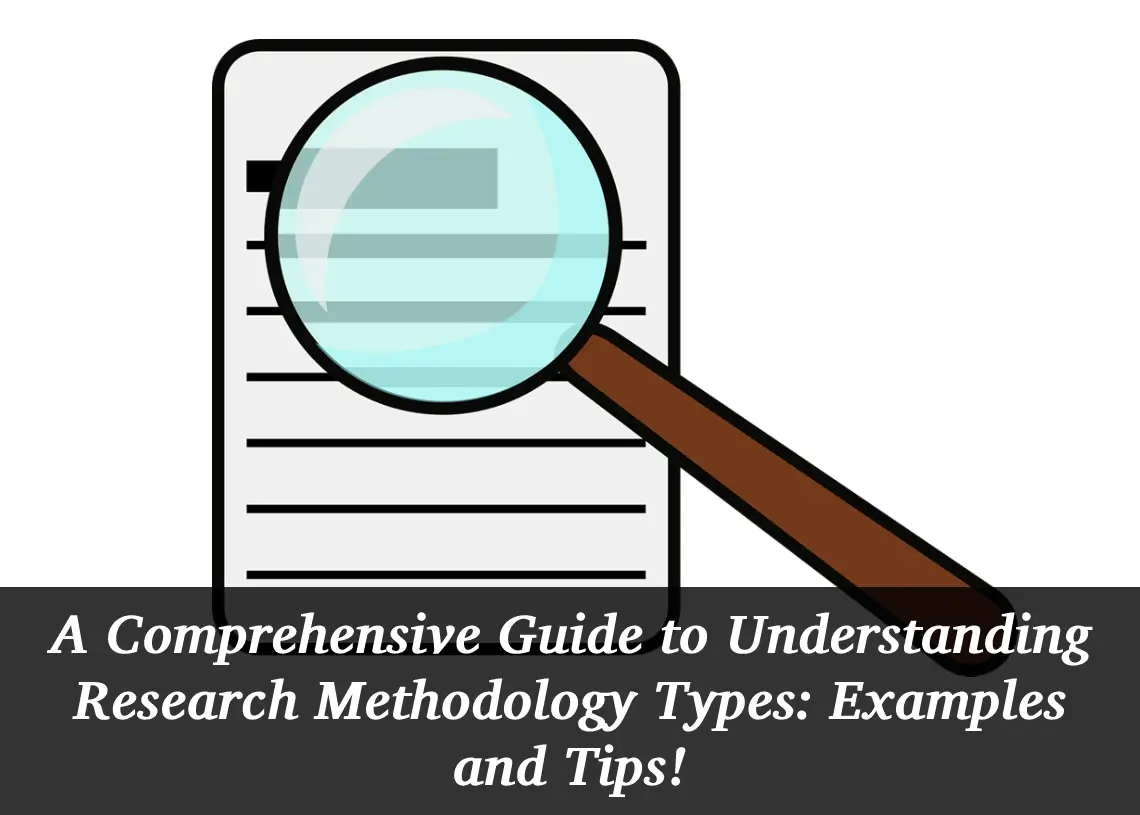Research is an essential part of any field of study. It involves collecting and analyzing data to answer questions or prove theories. Research methodology is the process of collecting, analyzing, and interpreting data to answer questions or prove theories. Depending on the objectives of the research, different types of research methodology can be used. In this article, we’ll take a look at the different types of research methodology, their examples, and tips for choosing the right one.
Introduction to Research Methodology Types
Research methodology is an important part of any research project. It serves as the framework for the research process and helps to guide the researcher in the right direction. Without a proper research methodology, the research process can be chaotic and the results may not be accurate or reliable.
There are many different types of research methodology that can be used for a research project. Each type of research methodology has its own advantages and disadvantages and can be used depending on the objectives of the research.
The types of research methodology can be divided into two main categories: qualitative and quantitative. Qualitative research is used to gain an understanding of the subjective aspects of a problem. It involves collecting and analyzing data that can’t be measured or quantified, such as opinions, attitudes, and beliefs. Quantitative research is used to gain an understanding of the objective aspects of a problem. It involves collecting and analyzing data that can be measured or quantified, such as numbers and statistics.
Types of Research Methodology
There are three main types of research methodology that can be used for a research project: qualitative, quantitative, and mixed methods. Let’s take a closer look at each one.
Subsection 2.1. Qualitative Research
Qualitative research is used to gain an understanding of the subjective aspects of a problem. It involves collecting and analyzing data that can’t be measured or quantified, such as opinions, attitudes, and beliefs. Qualitative research can be used to explore a wide range of topics, from attitudes towards a particular product to the motivations behind a certain behavior.
Qualitative research is often used in the early stages of research to gain an understanding of the problem and to develop hypotheses. Qualitative research can also be used to validate or refute hypotheses developed from quantitative research.
Subsection 2.2. Quantitative Research
Quantitative research is used to gain an understanding of the objective aspects of a problem. It involves collecting and analyzing data that can be measured or quantified, such as numbers and statistics. Quantitative research is often used to determine the effectiveness of a product or service, to measure customer satisfaction, or to analyze market trends.
Quantitative research can also be used to test hypotheses developed from qualitative research. It is often used in the later stages of research to validate or refute hypotheses.
Subsection 2.3. Mixed Methods Research
Mixed methods research is the combination of qualitative and quantitative research methods. It is used to gain a comprehensive understanding of a problem by combining the strengths of both qualitative and quantitative research. Mixed methods research can be used to develop hypotheses, to validate or refute hypotheses, or to explore a wide range of topics.
Examples of Research Methodology
Now that we’ve discussed the different types of research methodology, let’s take a look at some examples of each type.
Subsection 3.1. Case Study
A case study is a type of qualitative research that involves in-depth analysis of a single subject or group of subjects. It is used to gain an understanding of a particular phenomenon, such as attitudes towards a particular product or service.
Subsection 3.2. Survey
A survey is a type of quantitative research that involves collecting data from a large number of people. It is used to gain an understanding of the opinions, attitudes, and beliefs of a particular group of people.
Subsection 3.3. Focus Group
A focus group is a type of qualitative research that involves a small group of people discussing a particular topic. It is used to gain an understanding of people’s opinions, attitudes, and beliefs.
Subsection 3.4. Experiment
An experiment is a type of quantitative research that involves manipulating one or more variables and measuring the effect on a particular outcome. It is used to test hypotheses and to determine cause-and-effect relationships.
Tips for Choosing the Right Research Methodology
Choosing the right research methodology for your research project can be a difficult task. Here are a few tips to help you make the right choice.
First, think about the objectives of your research. What do you want to accomplish with your research? Different types of research methodology are better suited for different objectives. For example, if you want to gain an understanding of people’s attitudes towards a particular product or service, a qualitative research method such as a survey or focus group might be more appropriate than a quantitative research method such as an experiment.
Second, think about the resources you have available. Different types of research methodology require different resources, such as time, money, and personnel. Make sure that you have the resources necessary to conduct the type of research you’ve chosen.
Finally, consider the advantages and disadvantages of each type of research methodology. Different types of research methodology have different strengths and weaknesses, so make sure to choose the one that best suits your research objectives.
Conclusion
Research methodology is an important part of any research project. It serves as the framework for the research process and helps to guide the researcher in the right direction. There are many different types of research methodology that can be used for a research project, including qualitative, quantitative, and mixed methods. Examples of each type of research methodology include case studies, surveys, focus groups, and experiments.
When choosing the right research methodology for your research project, it’s important to consider the objectives of your research, the resources you have available, and the advantages and disadvantages of each type of research methodology. With these tips, you’ll be able to choose the right research methodology for your research project.
Research methodology types are a useful tool for researchers. With the right research methodology, researchers can gain a better understanding of the problem they’re studying and produce reliable results. So, the next time you’re conducting research, make sure to choose the right research methodology type for your project.




